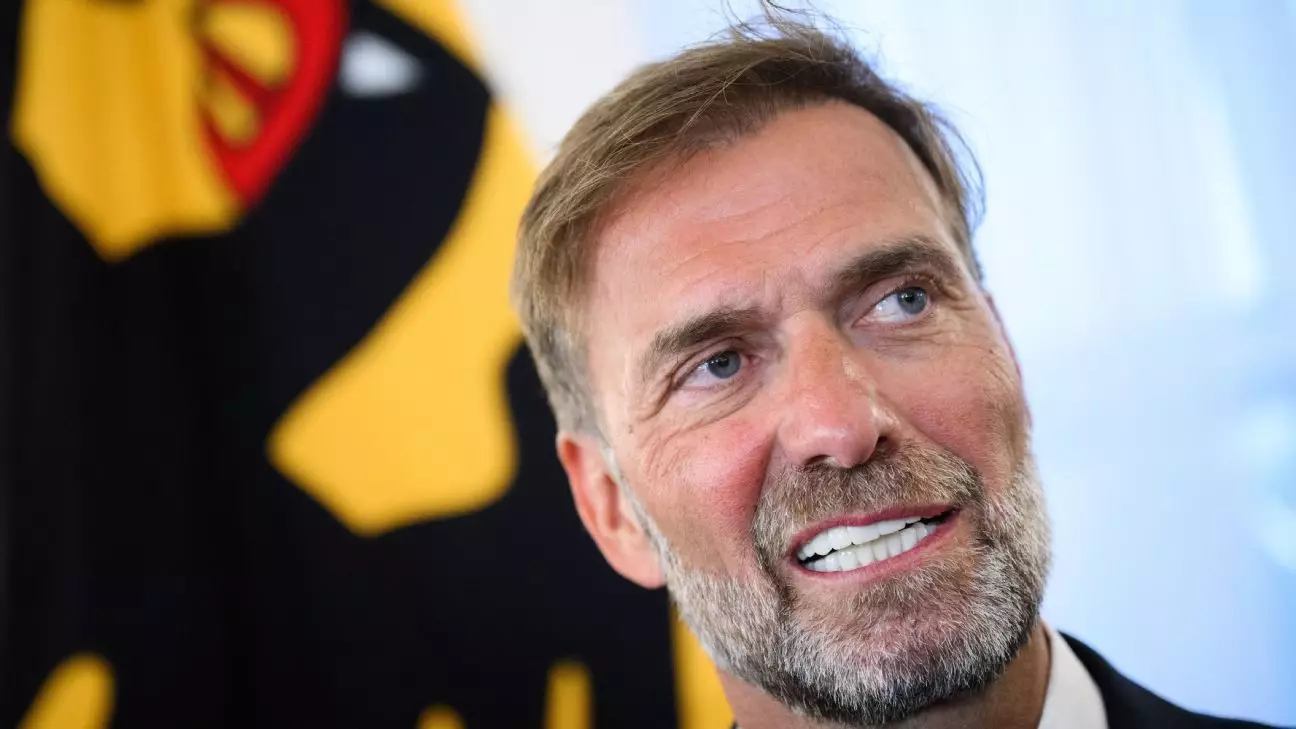Jürgen Klopp’s recent appointment as the head of global football for Red Bull has galvanized a significant conversation in the world of football. His decision has sparked backlash, particularly from fans of the clubs he has previously managed, including Borussia Dortmund and Mainz. While Klopp’s career is adorned with accolades and a reputation for passion and loyalty, this move challenges those very attributes. It raises questions not only regarding loyalty to past clubs but also the increasing commercialization of football.
Klopp’s position on his appointment has been defensive yet surprisingly candid. In an interview with former Real Madrid midfielder Toni Kroos, he expressed that he did not wish to “step on anybody’s toes.” This statement appears almost apologetic, as if he is seeking to mitigate the backlash from disillusioned fans. However, it also demonstrates a nuanced understanding of his career’s intricacies. Klopp acknowledges the complex emotions tied to changes in professional commitments. He truly appreciates the clubs he has worked for, evident in his assertion that his decisions might leave some fans discontented. This emphasizes the delicate balance professional footballers and managers must dance around in a world where fan loyalty often becomes personal.
The outcry from the fanbases of his former clubs indicates a broader issue within football today. The role of corporations like Red Bull in football is increasingly scrutinized, as many supporters view their involvement as detrimental to the sport’s integrity. RB Leipzig, in particular, has been at the center of this debate due to the perceived artificiality of their success, driven by financial backing rather than traditional methods of development and talent cultivation.
Fans from Dortmund and Mainz, who once celebrated Klopp’s contributions, now feel betrayed. The ironic twist here is that, despite his efforts to champion football’s emotional connections, his move is viewed as a capitulation to the very market forces that many fans blame for commodifying their sport—and in doing so, cheapening its essence. The banners displayed by Mainz supporters, questioning his sanity for this decision, underscore the passionate, sometimes irrational, nature of fan loyalty and sentiment.
Interestingly, Klopp has argued that Red Bull’s foray into football has not been entirely negative. He suggested that Red Bull’s investment has reinvigorated competitive football in regions such as East Germany, where the sport had stagnated. This perspective introduces a dichotomy where commercial forces are being framed as necessary, albeit controversial, catalysts for sporting revitalization. It’s a striking assertion that challenges traditional views on football’s organic growth and raises questions about the role of corporate entities as both instigators of progress and sources of contention.
The narrative Klopp is weaving around his new role is one of mentorship and advice rather than direct oversight or control. His ambition to serve as an adviser to coaches under Red Bull’s umbrella might catalyze innovative approaches in club management and player development. It signals an acknowledgment of the inherent loneliness of a coach’s position—an essential insight from someone with extensive leadership experience. Yet, the idea of advising from the sidelines rather than engaging directly might still reignite criticism.
Klopp’s announcement of taking a “long break” after leaving Liverpool made headlines, marking the end of a successful era. Now, at the age of 57, he faces the dual realities of wanting to contribute to football while navigating an evolving landscape. His role has shifted, and while he states he doesn’t foresee being back on the sidelines soon, the allure of football continues to pull him back into the fold, suggesting a complex relationship between his passions and the external pressures of the footballing world.
Klopp’s move to Red Bull illustrates the complexities of modern football, charting a course through loyalty, commercialization, and innovation. His journey reflects not just personal ambitions but also encapsulates the ongoing debates surrounding the sport’s direction. As he navigates this new chapter, fans and critics alike will be watching closely, reminding us that in football, every decision reverberates far beyond the pitch.
